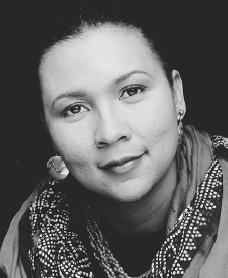
Summary/Reflection:
As a child, I often remained silent because I was always taught that children were only supposed to speak when spoken to. There were no women or men around me who encouraged me to speak. It was not until my father started to tell me stories of my mother's sharp tongue and defiant attitude that I started to "talk back" as a response to comments made to me that I did not agree with. Then, while completing a graduate program in English Literature, I was introduced to the work of bell hooks who often spoke about coming to voice and "talking back." I immediately felt a connection. hooks (1989) speaks about growing up in spaces where black women "spoke a language so rich, so poetic, that it felt to [her] like being shut off from life, smothered to death if one were not allowed to participate" (p.5). The connection that I felt came when I realized that my grandmother (my father's mother), like my mother, actually spoke in this way. Her stories of childhood were mesmerizing, but her stories of survival in the southern United States were even more significant.
Learning to defy patriarchal and racialized silence is the subject of hooks' (1989) "talking back;" a practice she learned from the other women in her family although speaking up was often seen as problematic for young girls. hooks took pride in following in the foot steps of her name sake and grandmother, bell hooks, because she was a "woman who spoke her mind, a woman who was not afraid to talk back," and a woman who hooks would come to cherish because of her "legacy of defiance, or will, of courage" (p. 7).
This essay is central to my research on the relationship between intergenerational learning and female youth activism in Detroit's hip-hop movement because part of learning is coming to voice; learning to speak when others would rather you be silent. Part of learning about activism from our ancestors is learning about their journey to political consciousness, and as many feminists would iterate, the personal is political. Therefore, what we consider to be a political act often begins at home as that which is personal.
hooks, b. (1989). Talking back: Talking feminist, talking black. Cambridge, MA: South End Press.
©Nicole Carter

No comments:
Post a Comment